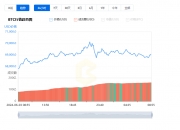
錢學森 資料照片
在近日揭曉的“漢語盤點2021”評選結果中,“元宇宙”當選年度國際詞,足見這一詞語的熱度。就在不久前紀念錢學森誕辰110周年時,關於錢學森曾給VR(虛擬現實)命名“靈境”的話題也引發了熱議。“元宇宙”譯自英文metaverse,是英文meta(原意“超越”,計算機領域譯為“元”)和universe(宇宙)的縮合詞。Metaverse源自美國科幻小說《雪崩》,該小說描述了一個名為Metaverse的虛擬世界,人們隻要通過公共入口連接,就能以虛擬化身進入其中,開啟有別於現實世界的另一種人生。
In the recent results of the Han-language board 2021 review, the term “won cosmos” was used as an international word for the year. Just recently, on the occasion of the 110th anniversary of Money Learners' Christmas, the question of the “spirit” that was given to VR (virtual reality) was also hotly debated. The term “metrocos” was translated from the English version of metaverse, which is the abbreviation of the English version of Meta (which meant “exceeding”, computer domain translation is “me”) and universese (cosmos). Metaverse originated from the American science fiction novel Avalan, which describes a virtual world called Metaverse, where people simply connect to the public entrance and can enter it in a virtual way that opens up a life that is different from the real world .
審視各界描繪的“元宇宙”藍圖,現實世界與虛擬世界相互映射、相互作用是其典型特征,VR是其不可或缺的關鍵技術。近日,上海交通大學錢學森圖書館披露,著名戰略科學家錢學森先生在20世紀90年代初給VR取過的一個名字,“靈境”。其實,他還在同一時期陸續命名了“遙作”(teleoperation)、“遙觸”(telesensation)、“遙知”(teleperception)、“遙在”(telepresence)、“信息環境”(cyberspace)等。如果將這組新概念有機結合在一起,恰似一張“元宇宙”的藍圖。而這張藍圖,錢學森在30多年前已經繪就。
對“靈境”的八年執著
錢學森是一位相當重視科技名詞定名的大家。1990年11月,錢學森在寫給時任“863計劃”智能計算機專家組組長汪成為的信中,首次提出了VR的譯名建議:“人為景境”或“靈境”,並強調“特別喜歡‘靈境’,中國味特濃”。1998年6月,錢學森回函全國科學技術名詞審定委員會(簡稱“全國科技名詞委”),在比較“臨境”與“靈境”之后,認為“用靈境是實事求是的”,最終推薦了“靈境”。不為人知的是,在這兩封信之間的8年時間裡,他還在寫給科研工作者、期刊編輯部、語文工作者以及自己親人的10余封信件裡提到並熱情推介他為VR創造的這個新名字——“靈境”。 In November 1990, in a letter to Wang, then head of the “863 Plan” smart computer team, he first proposed the VR translation: “Man is a landscape” or “spirits” and stressed “special love for the ‘spirits’, Chinese flavour.” In June 1998, he wrote back to the National Commission for the Identification of Scientific and Technological Nomenclatures (the “National Commission of Technology Nomenclatures”) and, after comparing the “situation” and the “spirits”, thought that the “spirits are the reality” and finally recommended the “spirits”. It is not known that in the eight years between the two letters he was writing to researchers, journal editors, linguists and his own relatives in more than 10 letters about the new name that he created for VR, the “spirits”.
盡管當時“靈境”沒有在學界使用開來,但這個名詞顯然已極大地觸發了錢學森這位戰略科學家豐富無比的想象力。1994年10月,他在給戴汝為、汪成為、錢學敏等三人的信中提道:“靈境技術是繼計算機技術革命之后的又一項技術革命,它將引發一系列震撼全世界的變革,一定是人類歷史中的大事。”他還隨信附了一張他暢想的藍圖:由“靈境技術”觸發“形象思維”和“靈感思維”,推動“創造能力大提高”,而“大成智慧”和“信息網絡”推動“科學大發展”與“文藝大發展”,甚至引發“科技革命”等。 In October 1994, in a letter addressed to Dare, Wang, and Money Sense, he said: “Psychic technology is yet another technological revolution following the revolution in computing technology that will shake the entire world and must be a major event in human history.” He also attached a blue map that he had imagined: “imageal thinking” and “intellectual thinking” by “spiriting skills”, “creational empowerment”, “intellectual intelligence” and “information network” and “scientific development” and “scientific development” and “scientific revolution” and so on.
錢學森給VR取名“靈境”,與他對科技名詞“中國味”的“執念”有關。1993年8月他致信朱光亞時提到,“譯詞應漢語化,帶點中國味。”1994年5月和9月,他兩度致信汪成為時提到:“以前人們直譯為‘虛擬現實’”,就“太沒有中國文化味了”,“外文名詞中譯,的確要慎重,總該從中顯示出中華幾千年的文化。……我們是愛國的呀!”同年11月,他致信楊春鼎:“我總認為我們國家是有自己的文化傳統的,外文名詞不能直譯,那樣沒有中國味,要中國化!” In his letter to Ju Guangya in August 1993, he said, “The word should be translated into Han and Chinese.” In May and September 1994, he wrote, “I always thought that our country had its own cultural tradition, that the foreign language could not be translated, that there was no Chinese smell, that there should be China!”
據筆者考察,“古語”中對“靈境”有3種解釋:一指“奇妙的境界”,見柳宗元《界圍岩水帘》:“靈境不可狀,鬼工諒難求”,形容鬼斧神工的瀑布風光﹔二指“虛幻的境界”,如紀曉嵐《閱微草堂筆記》提到《紀夢十首》中有:“靈境在何處,夢游今幾回”﹔三指“少人的境界”,如《入唐求法巡禮行記》描繪唐武宗會昌四年毀佛后寺廟門可羅雀的凋敝景象:“四處靈境,絕人往來,無人送供。”很難說錢學森鎖定了某一種解釋,而更像是綜合選取了“靈”所具有的“虛幻”與“奇妙”義,與“境界”義的“境”組合,形成了疊韻詞“靈境”。“靈”與“境”是偏正結構,語義上一虛一實,構詞巧妙。 According to the author, there are three interpretations of the “spiritual landscape” in the Ancient Language: the first refers to the “miraculous frontier” and the second refers to the “irresistance of spirituality”, the “irresistance of the ghost workers”, the second to the “false landscape”, as in the case of the tenth book of Micrograss Reading, which refers to “where the spirit is and how many times it has gone”; the third refers to the “minority of the human world”, as in the case of the Journal of Access to the Tangling Law, which depicts the image of the Tang Wujun who will destroy the temple door of the post-Word Temple in four years: “All the spirits, all the people have come, and there is no supply.
在錢學森的心目中,“靈境”不是沒有遇到過挑戰。1994年5月,他致信汪成為時提道:“我建議用帶詩意的‘靈境’。我現在想這又可能太‘文’了點。……‘臨境’音同‘靈境’,但更通俗易懂,有其優越性。”的確,VR技術是虛擬和現實的結合,人在虛擬世界裡能獲得如臨現實的真切感受,而二字格的“臨境”同樣語出經典——“身臨其境”。最終,雖然錢學森“因為這個境是虛的,不是實的”而放棄了“臨境”,但畢竟也沒有將“臨境”歸為完全沒有“中國味”的詞。 In May 1994, when he became a believer, he said, “I suggest a poetic ‘spiritual’. I think it may be too ‘symmetric’ now. The ‘spiritation’ sounds are ‘spirits’, but they are easier to understand, and they are superior.” Indeed, the VR technique is a combination of fiction and reality, and people can get as real as they are in the virtual world, while the two-word “situation” is a classic ‘situation’ — “situation in it.” At the end of the day, even though the money learned to give up the “situation” “because it is vanquished, it is not true”, it has not turned the “situation” into a completely non-Chinese expression.
“靈境”因何沒被採納
全國科學技術名詞審定委員會是國務院批准成立,代表國家授權審定公布名詞的權威機構。為了確保科技名詞定名的權威性和通行度,全國科技名詞委原則上會盡可能採納當時專家共識度更高的定名意見。科技界當時未就“靈境”這個定名形成廣泛共識,是這個當下備受推崇的科技名詞在當時沒有被國家採納為規范名的主要原因。 In order to ensure the authority and accessibility of the terminologies, the National Science and Technology Nomenclature Commission would, to the extent possible, take up a higher degree of consensus among the experts at the time. The lack of general consensus in the scientific and technological community on the term “the state” was the main reason why the currently favoured term had not been adopted by the state at the time.
VR的中文名,僅1996和1997年的《光明日報》就載有“虛擬實在”“臨境”“虛實”“電象”“虛擬境象”以及“靈境”等。全國科技名詞委主辦刊物《科技術語研究》(現名《中國科技術語》)在1998年創刊伊始就專門開辟專欄討論VR的中文規范名。當時學界的近20種譯名建議,包括“虛擬現實”“虛擬實境”“虛擬實在”“虛擬境像”“零境”“臨境”“擬真”“擬實”“擬境”“虛實”“幻真”“幻境”“虛境”“虛真實”“虛現實”“猶真現實”等。當時參與專欄討論的專家陣容強大,但也眾說紛紜。比較典型的定名意見包括錢學森院士的“靈境”,汪成為院士的“虛擬現實”或“靈境”,何祚庥院士與金吳倫的“虛擬實在”等。胡啟恆院士對“靈境”提的三點保留意見比較有代表性:“與英文原意相距太遠”,“可能引起現代科學技術裡頭已經產生了玄妙而神異的境界的誤解”,“無法應對大量同族名詞”。 The Chinese name of VR, published in 1996 and in 1997 alone, was dedicated to discussing the Chinese paradigm of VR at the beginning of its 1998 edition. Nearly 20 translations from the academic community, including the “real” “real” “real” “real” “nature” “nature” “nature” “nature” “nature” “nature” “nature” “nature” “nature” “nature” “nature” “nature” “nature” “nature” “nature” “nature” “nature” “nature” “nature” “nature” “nature” “real” “nature” and “nature” “nature” “nature” “s”, which were discussed at the beginning of the publication.
當專家們對某個定名意見存在較大分歧時,往往備選方案中共識度更高的定名意見(如“虛擬現實”)就會在討論中勝出,被國家採納,成為全國各科研、教學、生產、經營和新聞出版單位遵照使用的規范名。 When experts are more divided about a given name, they tend to have a higher degree of common understanding about the options (e.g. “fiction reality”) in the debate, which is adopted by the state as the standard for scientific research, teaching, production, running and news publishing units throughout the country.
科技名詞的“中國味” The "Chinese Favorite" of the technology term
錢學森創造的漢語科技新詞很多,他曾這樣評價自己:“外文名詞中譯,的確要慎重,總該從中顯示出中華幾千年的文化。我在這方面是在不斷努力,有成功的,如:激光、航天、航天飛機、空天飛機,也有失敗的,如我原建議‘黑洞Black Hole’譯為‘陷光星’。”錢學森在書信中談及對科技名詞定名的意見時,常常提到“中國味”“中國風味”“中國文化味”“中國化”“漢語化”“中國文化傳統”“中國范”等字眼。他非常希望中國的科技新名詞能更好體現中華科技文化傳統和中國語言文化傳統。 There are many new words in the Han language that Money has created, and he has commented on himself as follows: “It is true that foreign terms are translated with caution, and it is always time to show China’s culture for thousands of years. I have been working hard and successful in this area, such as lasers, space shuttles, skyscrapers, and failures, such as my suggestion that ‘Black Hole’ be translated as a ‘light star’.” In his letters, he has often referred to the Chinese “Chinese” and “Chinese” and “Chinese” and “Chinese” and “Chinese” and “Chinese” and “Chinese” cultural traditions. He very much hopes that China’s new scientific and technological terms will better reflect the Chinese and Chinese cultural traditions.
錢學森所提倡的科技名詞“中國味”,與全國科技名詞委科技名詞審定原則中的“中文特性”原則異曲同工。該原則位列於“單義性、科學性、系統性、協調性”等原則之后,與“國際性”原則並列,意在強調科技名詞定名要符合中文特點,善用體現中華傳統文化和中文特點的科技名詞來表達科技概念,如天文學名詞“Venus”“Jupiter”定名為“金星”“木星”而不是“愛神”“大力神”。此外,近30年來全國科技名詞委組織海峽兩岸科技專家共同為新元素定名,採用既有古字中選擇或者新造形聲字的方法,如115-118號元素的中文名“鏌”“見圖①”“見圖②”“見圖③”等,也是中文特性原則的另一種例証。 After the principles of “monitorism, science, system, harmony” and the principles of “internationality”, it is intended to emphasize that the term “technology” is consistent with the Chinese particulars, to express the concept of science and technology using the current Chinese- and Chinese-specific terms, such as the astronomical term “Venus” “Jupiter” as “Star” rather than “God of Love” as “Jupiter.” In addition, for the past 30 years, the entire National Organization of Scientific and Technical Terminology (NTO) scientific and technological experts on both sides of the Taiwan Straits have jointly named new elements, using methods of choosing or making new narratives, such as the Chinese term “Jupiter” of the 115-118 element “see figure 2” — another example of Chinese identity.
科技名詞有科學技術和語言文字雙重屬性,而科技發展水平和語言表達能力在共同影響著一個國家科技語言的國際地位。錢學森在引領科技創新發展時,總念念不忘及時為新概念創造好的中文名,他創造的諸多經典命名為這些前沿科技概念的迅速普及發揮了不可估量的重要作用。筆者呼吁,在新時代建設科技強國的偉大征程中,中國科學家除了埋頭鑽研科技創新以外,還應該多花點心思給科技新概念盡早取個好名字。與此同時,在科技領域自信地用中文交流,在科技期刊自信地用中文撰寫文章,充分發揮中文術語的獨特魅力,講好中國的術語故事,也都應該成為新時代中國科技界增強文化自信,推動中國術語走出去,進而把握世界科技話語權競爭主動性的戰略自覺。 In leading the development of science and technology, it is important to keep in mind the Chinese name created in time for the creation of new concepts, and the many classics he has created have played an immeasurable role in the rapid diffusion of these cutting-edge concepts. I call on Chinese scientists, in the new era’s great quest to create a technologically powerful country, to spend more time and effort on giving new ideas of science and technology a good name. At the same time, using the Chinese language with confidence in the field of science and technology, writing articles in Chinese with confidence in the journal of science and technology, giving full use to the Chinese language’s unique charms, and telling Chinese-language stories, to be part of the new era of China’s science and technology community to build cultural confidence and inspire China’s language to move forward, and to win the world’s voice in science and technology.
優化科技新詞的定名 a given name for the new term
30多年過去了,“元宇宙”突然異常火爆,而錢學森的譯名“靈境”也隨之重歸大眾視野,備受推崇。這一現象觸動我們思考,如何引導科學家群體在新概念尚未固化時形成相對合理的推薦性意見?如何優化科技新詞的定名工作?在世界科技話語權競爭愈演愈烈的當下,這恐怕已經是一個不容回避的時代課題了。 More than 30 years ago, the “won cosmos” suddenly burst into flames, and the money-student's translator, the “intellectual landscape,” has come to the attention of the public. This has touched us to think about how to guide the community of scientists to make a sound recommendation when new concepts have not been entrenched.
筆者認為,一方面國家要從體制上保障在科技規劃和項目實施中同步關注科技新詞定名及發布試用工作,為國家將科技名詞工作向科技前沿縱深推進,從科技創新的源頭上把好新概念的入口關,及時掌握科技新概念的定名主動權創造積極條件﹔另一方面,要在廣大科學家群體中發現一大批活躍在科技一線,兼具科學技術素養和語言文字素養,擅長科技概念命名及科學普及工作的高層次專家,及時發現、研究並推進科技新概念的及時命名與推廣普及,各有關單位也應將科學家群體參與科技名詞工作的貢獻納入國家和單位對科技人才的評價體系。 I believe that, on the one hand, the State should ensure that its scientific programmes and projects are implemented in a synchronized manner with the definition and application of new scientific terms, and that it should promote scientific terminology to the forefront of science and technology. On the other hand, it should create positive conditions for the entry and promotion of new concepts from new sources of science and technology, as well as for the ownership of new concepts of science and technology; and, on the other hand, it should find in the wider scientific community a large number of people who are active in science and technology, with both technical and linguistic literacy, high-level experts who are good at naming and popularizing science and technology concepts, as well as high-level experts who have discovered, studied and promoted new concepts of science and technology in time and in time.
近來,以“靈境”為代表的科技名詞命名理據的本土科學文化來源,在很大程度上引起了全社會的廣泛共鳴。而錢學森或許是受到“靈境”的啟發,形成了關於“形象思維、靈感思維”的思考,進而產生了關於“思維科學”與技術引發“科學大發展”“文化大發展”的戰略構想。由此來看,在科技前沿領域與核心概念層面,科技名詞定名的戰略意義不容小覷。我們需要更深刻地領會錢學森先生在孜孜以求科技名詞“中國味”時,那舉重若輕的戰略考量和對中華傳統歷史文化深沉的愛。 In recent times, the source of indigenous science and culture, named after the term “spirits” of technology, has been largely shared by the whole society. And Moneyson, perhaps inspired by the “spirits,” has developed thinking about “image, spirituality,” and has developed a strategic vision of “scientifics” and technology, leading to “scientific developments” and “cultural developments.” So, at the cutting edge of science and technology and at the core of the concept, the strategic significance of a technology name cannot be underestimated.
(作者:張暉、裴亞軍,分別系全國科學技術名詞審定委員會事務中心副主任、主任) (author: Zhang Xing, Baia Army, with a distinction of deputy director and director of the National Council of Scientific and Technological Nomenclatures) 分享讓更多人看到 
注册有任何问题请添加 微信:MVIP619 拉你进入群

打开微信扫一扫
添加客服
进入交流群



















发表评论